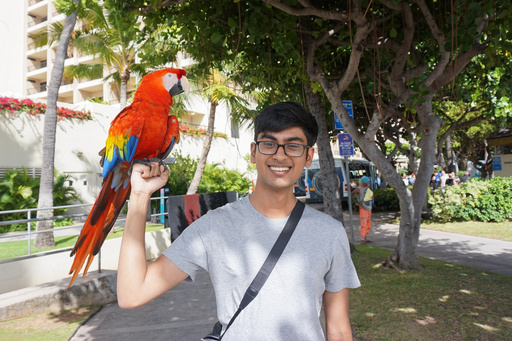Suchir Balaji, a 26-year-old former engineer with OpenAI and whistleblower, has passed away, as confirmed by family and city officials in San Francisco. Balaji was known for his role in training the artificial intelligence models that led to the development of ChatGPT and publicly expressed concerns regarding potential violations of copyright law associated with these practices.
Balaji worked at OpenAI for close to four years, resigning in August. He was highly respected at the organization, with a co-founder referring to him as one of the most valuable contributors to OpenAI’s efforts, playing a vital role in the creation of several of its products. OpenAI expressed its sorrow at the news of his passing, offering condolences to his family during this tragic period.
Authorities found Balaji deceased in his apartment in San Francisco on November 26, with police labeling the incident as a probable suicide after ruling out foul play in their initial inquiry. The city’s chief medical examiner confirmed the cause of death as suicide.
In their statement, Balaji’s parents, Poornima Ramarao and Balaji Ramamurthy, are still looking for clarity regarding their son’s death, remembering him as a “happy, smart and brave young man” who enjoyed hiking and had recently returned from a trip with friends.
Balaji grew up in the San Francisco Bay Area and began his journey with OpenAI during a summer internship in 2018 while studying computer science at the University of California, Berkeley. He later returned, contributing significantly to projects like WebGPT, which laid the groundwork for ChatGPT. John Schulman, a co-founder of OpenAI who recruited Balaji, noted that his dedication and meticulousness were pivotal to the success of the projects he was involved in.
Initially, Balaji organized extensive datasets of online content utilized to train GPT-4, OpenAI’s fourth generation large language model. This work led him to question the ethical implications of the AI technology he helped develop, especially in light of a number of lawsuits from authors and media entities that claimed copyright infringement by OpenAI and similar companies.
He shared his concerns with The New York Times, which covered his thoughts in an October profile. Balaji had indicated a willingness to testify in significant copyright infringement cases, considering lawsuits such as one brought by The New York Times as particularly serious. He was identified as a potential key witness in related court filings due to his unique insights regarding OpenAI’s practices.
Balaji conveyed to the press his belief that utilizing individuals’ data for training purposes and then competing with them commercially was inappropriate and likely unlawful. Over time, he became increasingly disillusioned with OpenAI, particularly after internal upheavals led to the temporary ousting and reinstatement of CEO Sam Altman. He expressed widespread concerns about the commercial rollout of the company’s products and their tendency to deliver inaccurate information, often referred to as hallucinations.
Despite his concerns about various issues within the organization, Balaji focused specifically on copyright matters as those he felt were actionable. He acknowledged that this stance might not be widely accepted in the AI research community, which typically relies on internet data, but he believed change was necessary and inevitable.
The specifics of Balaji’s potential testimony in ongoing legal cases remain uncertain following his death. He had also communicated his perspectives through a personal blog.
Schulman noted that he and Balaji left OpenAI on the same day, coincidentally, and celebrated with colleagues at a local bar in San Francisco. Another mentor to Balaji, Ilya Sutskever, had departed OpenAI months prior, influencing Balaji’s decision to leave as well. Schulman recalled Balaji expressing a desire to pursue a doctorate to explore unconventional ideas regarding intelligence development.
A memorial for Balaji is planned at the India Community Center in Milpitas, California, close to his hometown of Cupertino.
**EDITOR’S NOTE:** This article includes references to suicide. If you or someone you know is in need of assistance, the national suicide and crisis lifeline in the U.S. is available at 988.



